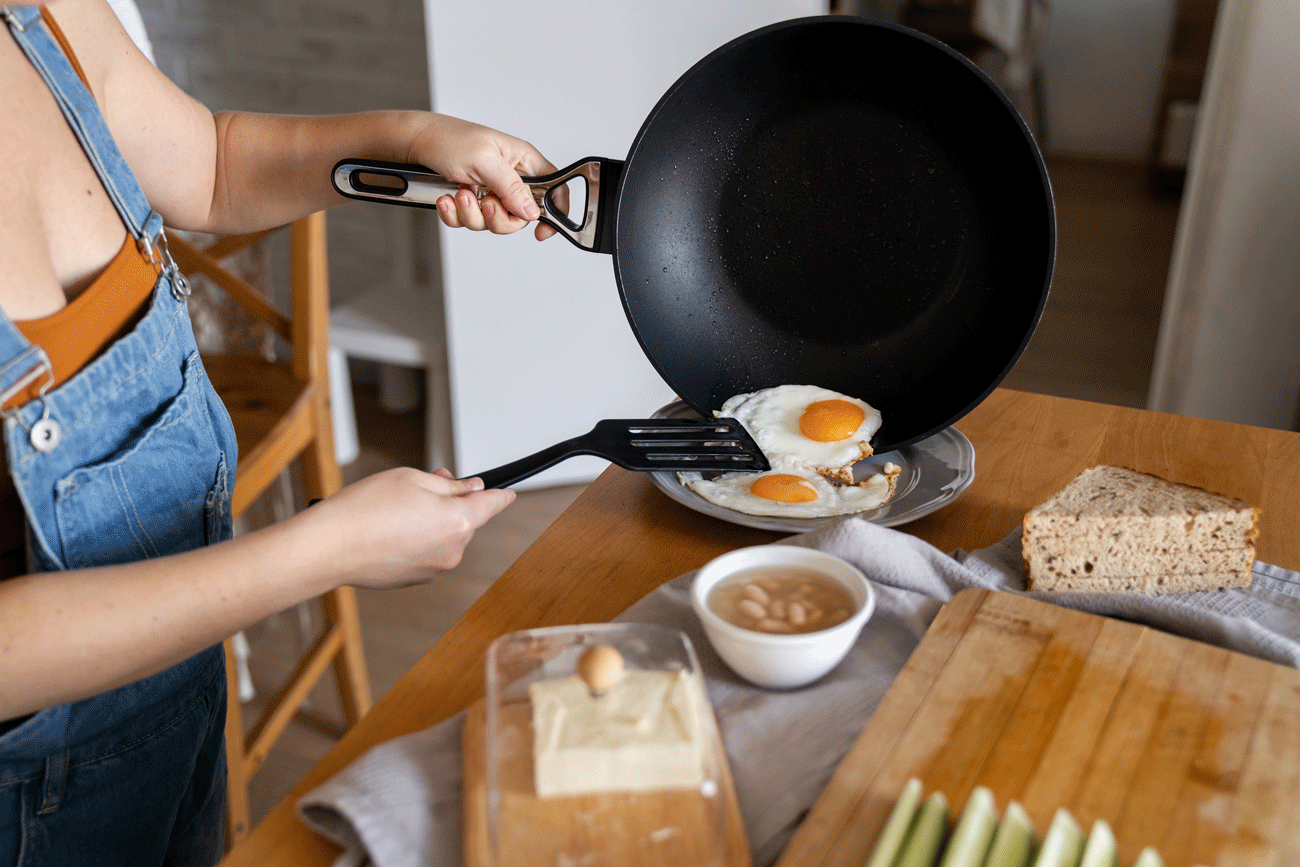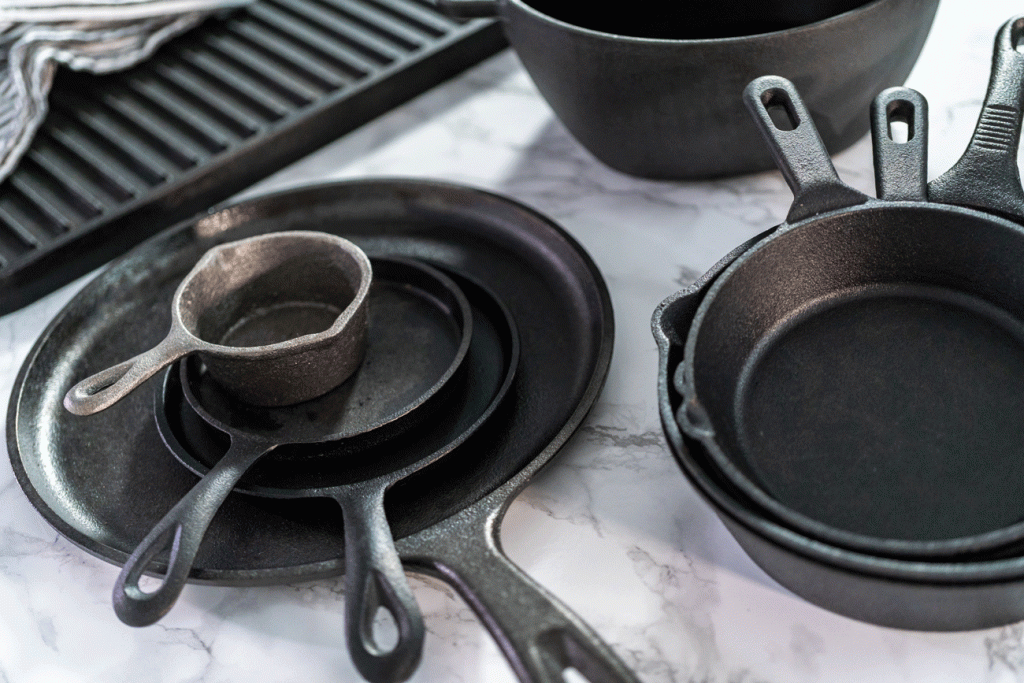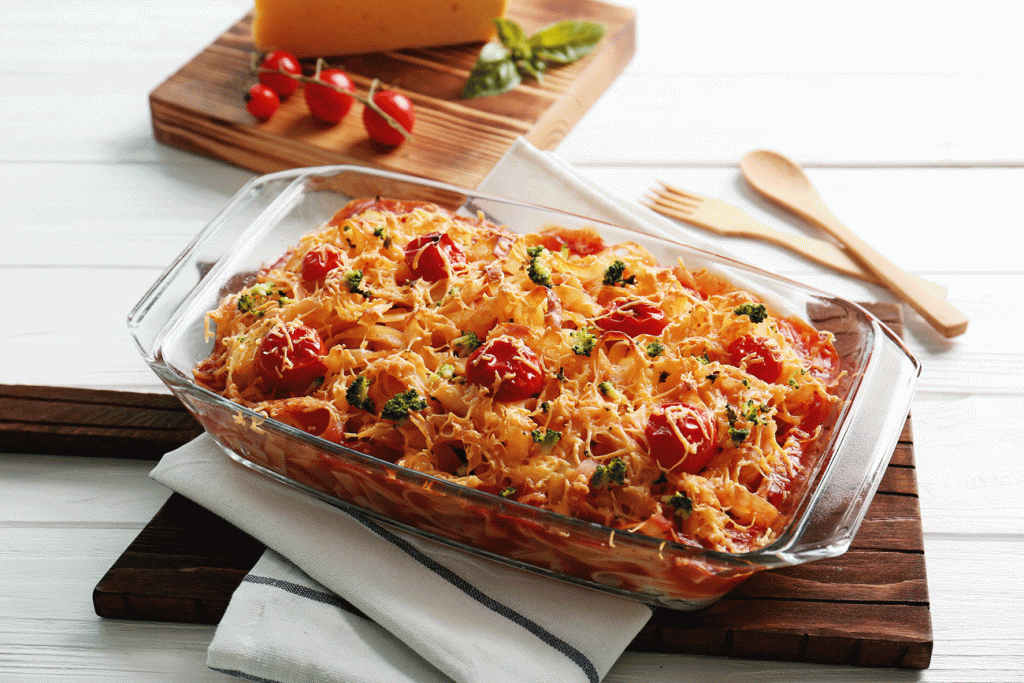
by Penny Lynch
Non-stick pans offer an ease and convenience that other cookware just can’t top – easy to use and easy to clean with no elbow grease involved. But this convenience comes at a hefty price to our health because it has been coated with toxic chemicals.
Your food won’t stick to your non-stick pans because they are coated with poly and perfluoroalkyl substances. When heated, these fluorinated chemicals are converted to perfluorooctanoic acid (PFOA), which is a chemical that has been tied to a number of serious health conditions such as thyroid disease, organ damage and even infertility.

So what are the alternatives available to us? In fact, there are many, far better, options available that will last you a lifetime, and are far more sustainable than non-stick pans.
Saucepans
Cast Iron
With proper seasoning and care, cast iron saucepans can become virtually non-stick. The downside is that this material is heavier than other types of cookware.
Carbon Steal
Carbon steel has all the benefits of cast iron: great heat retention, seasoning that creates a virtually non-stick finish, but with a fraction of the weight. Many chefs now choose to cook on carbon steel because of its durability.
Stainless Steel
Good stainless steel cookware, as with cast iron, can last a lifetime. They are ideal cooking surfaces for long-simmering foods, and acidic foods like tomato sauces, which don’t fare well in cast iron. Proper cooking techniques can help you achieve a fairly non-stick surface, even with eggs!.
All of the above types of saucepans, with proper care and attention, will eas- ily last you a lifetime and probably longer. They may cost more initially but are very much worth it.
Bakeware
Stainless Steel
Most stainless steel bakeware items are either coated in non-stick PFAS chemicals or made of aluminium, both of which should be avoided. Instead, look for stainless steel items that do not have any kind of coatings.
Stoneware and Ceramic
Natural stoneware is a great choice for baking, although like cast iron, it requires special hand- ling and cleaning to ensure its longevity.

Glass
Modern glass is an excellent non-toxic option for baking – stay away from vintage glass for both cooking & storage as these can contain heavy metals such as lead.
Enamel
Enamel is a great, inexpensive, lightweight op- tion for making all types of baked dishes; the enamel surface is inert, but it can easily chip. Usually the material under the enamel is steel, so it should generally still be safe to use.











